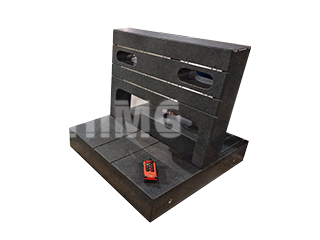Granite has long been recognized not only for its strength and aesthetic appeal but also for its sustainability as a building material. As global awareness of environmental responsibility grows, the environmental performance of construction materials has become a critical consideration, and granite components stand out for their favorable ecological profile.
Granite is a natural stone, primarily composed of quartz, feldspar, and mica—minerals that are abundant and non-toxic. Unlike many synthetic building materials, granite contains no harmful chemicals and does not release hazardous substances during its lifecycle. Its natural composition and durability make it a material with inherently low environmental impact, starting from the raw material stage.
Modern processing technologies have further improved the ecological footprint of granite components. Techniques such as waterjet cutting minimize dust emissions, while noise control systems help reduce processing disturbances. Increasingly, manufacturers are adopting green practices, including water recycling and waste recovery, which further enhance the sustainability of granite production.
During its service life, granite demonstrates exceptional environmental performance. Its inherent durability and resistance to weathering mean fewer replacements over time, reducing both resource consumption and construction waste. Unlike many other materials, granite requires no chemical coatings or surface treatments, avoiding the use of potentially harmful substances. Additionally, granite does not release pollutants or volatile compounds during use, making it safe for indoor and outdoor environments alike.
At the end of its lifecycle, granite can be repurposed rather than discarded. Crushed granite finds new life as paving materials, wall fillers, or aggregate for construction, while ongoing research explores applications in soil improvement and water purification. This recycling potential not only conserves resources but also reduces landfill burden and energy consumption.
While granite is highly sustainable, it is not without environmental challenges. Quarrying can disrupt local ecosystems, and processing activities may generate dust and noise if not carefully managed. Addressing these issues requires robust environmental regulations, adoption of cleaner production techniques, and continued innovation in recycling and reuse strategies.
Overall, granite components offer a compelling combination of durability, aesthetic appeal, and environmental responsibility. With thoughtful management, technological advancement, and sustainable practices, granite can continue to play a vital role in eco-conscious construction, delivering long-term performance while minimizing ecological impact.
Post time: Nov-13-2025

